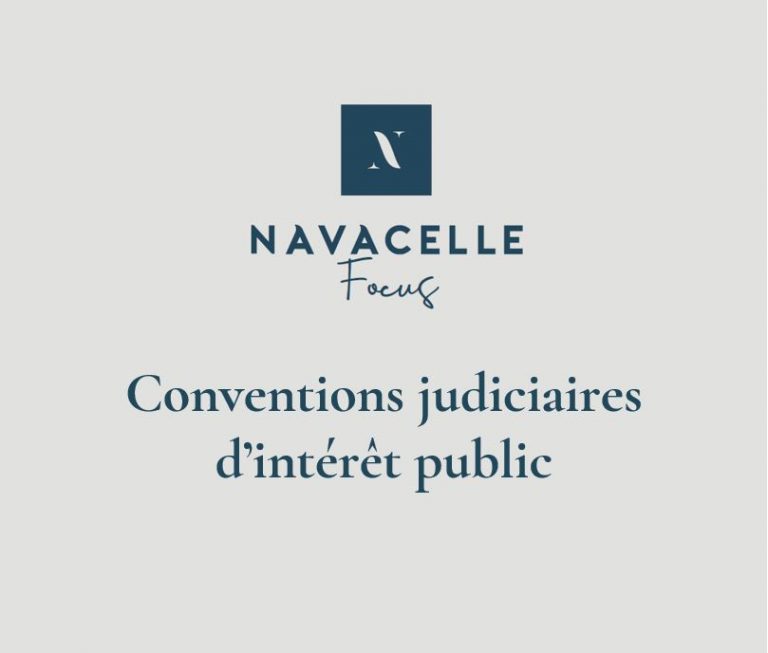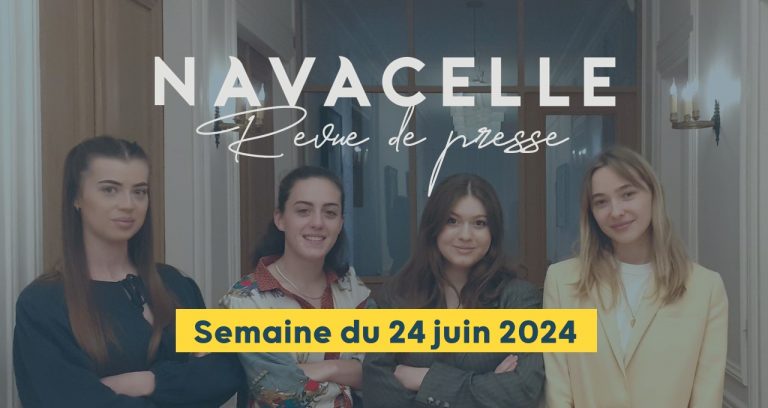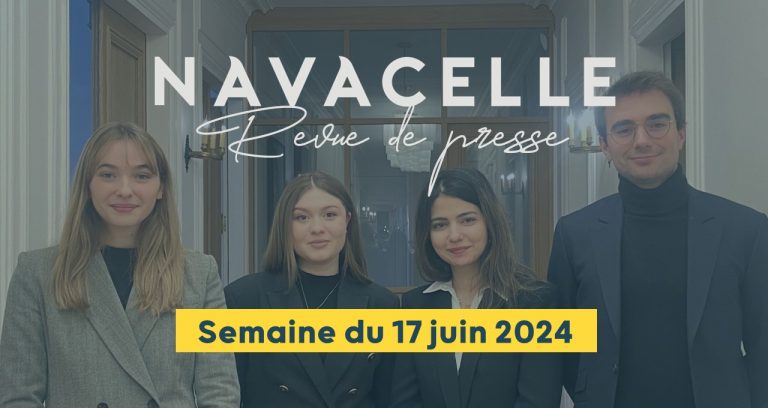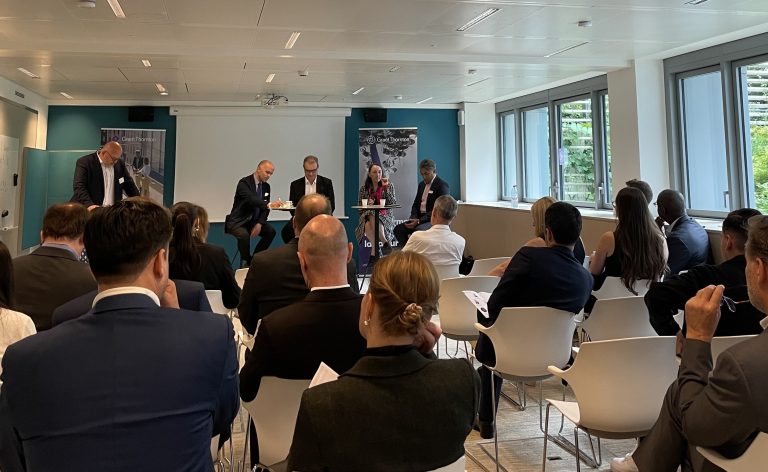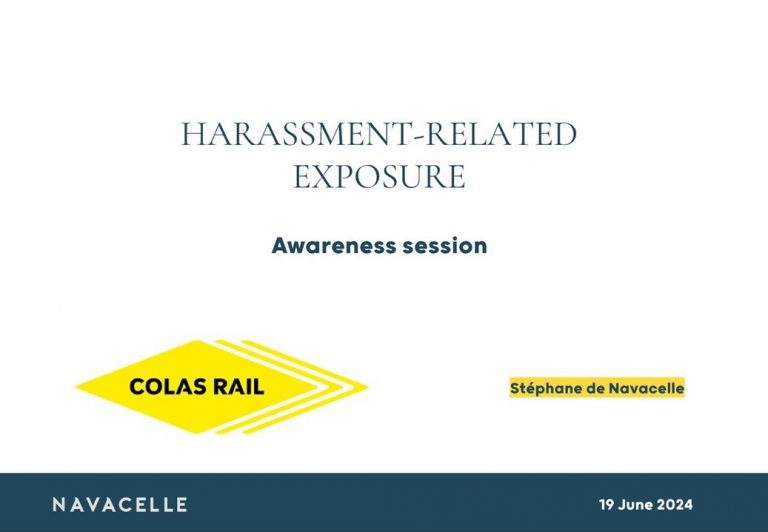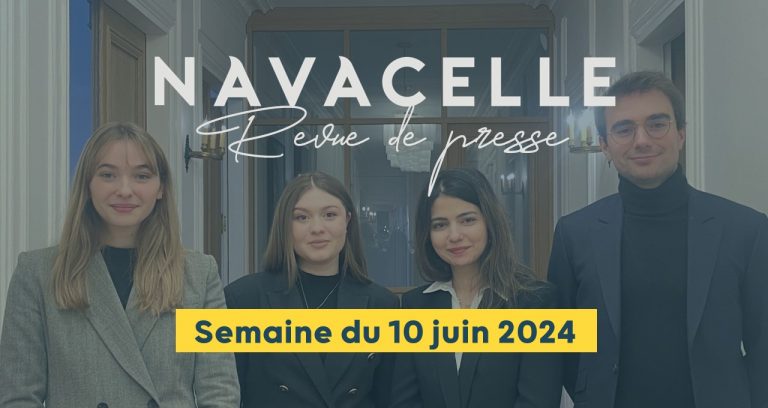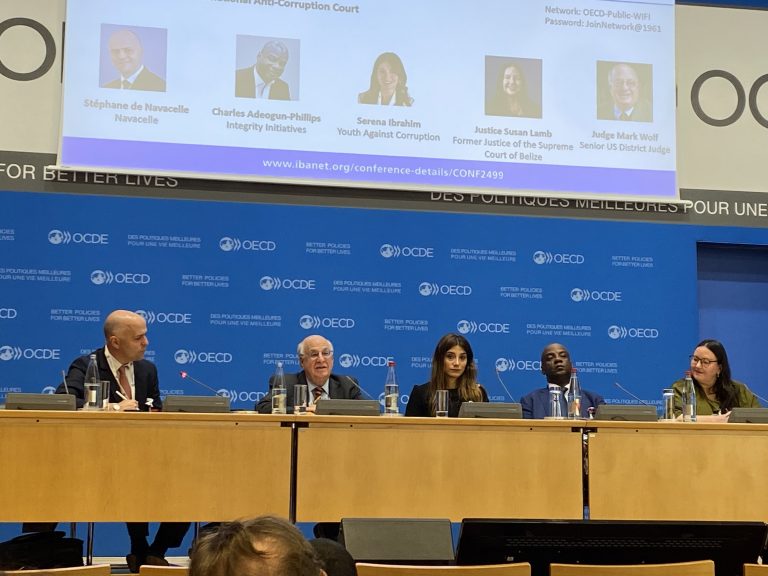On April 20, 2021, Julie Zorrilla and Stéphane de Navacelle spoke to recent developments on successor company corporate criminal liability, Plea Bargaining and DPAs in France as well as EU legal cooperation in cross border investigation at the invitation of the American Bar Association International Criminal Law and International Anti-corruption committees.
Stéphane de Navacelle: For this presentation, we thought we would address three issues which are relevant for our group.
(i) The first one is a decision by the Supreme Court when it comes to the criminal liability transfer of the surviving entity. Up until this recent decision, the liability would die with the corporate and very often, we would find ourselves in challenging positions in criminal procedures, keeping corporate entities artificially alive or for the purpose of the investigation, so we didn’t seem as if we were trying to elude liability. Now the situation is much clearer, in the sense that it will not have any effect on criminal liability. You can find that in the compliance programs expectations – when it comes to the due diligence that is warranted in M&A – which are set forth by the French Anticorruption Agency, it really opens a whole new area of concern for practitioners and we can see it shift, to quite some extent, from the investigation defence work to M&A anticorruption compliance checks.
(ii) The second issue is one of concern for anyone working on plea deals in France. It concerns the rejection of plea deals for individuals by a Paris court in a prominent corruption case, while the DPA for the corporate was approved by the homologation judge. That refusal to homologate cannot be appealed. In effect, the PNF has lost a lot of its bargaining power. It does tell you something about judges’ lack of approval of these very recently introduced plea deals.
(iii) The last issue is a new example of the effective use of EU legal cooperation mechanism to dismantle crypto-network EncroChat.”
I. Criminal liability transfer in case of a merger and acquisition of a public limited liability company
Stéphane de Navacelle: “On November 25, 2020, the French judicial Supreme Court ruled that in the event of a merger by acquisition of a public limited liability company, the criminal liability of the acquiring company could be incurred for acts committed by the acquired company before the merger. It is however expected that it will be broader than just that.”
The acquiring company can only be condemned to a financial sanction such as a fine or asset forfeiture.
Except if the merger is solely designed to avoid criminal liability of the acquired company, financial sanctions may be combined with additional sanctions (dissolution of the company, ban from public procurements, etc.).
“It really enhances the need for proper due diligence. We have seen case law increase and geographically move to investments that took place in Africa post 2008-2010 crisis, when there was a rush of growth and probably insufficient due diligence. That’s sort of coming back to bite those investors who likely overpaid if the turnover was allowed thanks to inappropriate payments or fraud.
The decision is a landmark in France because in many ways, it breaks with the traditional view of corporate criminal liability. It is surviving the death of the corporate. It’s creating a system that is really distinct from physical people as compared to moral entities.”
Key takeaways: Specific caution and due diligence.
II. Rejection of plea deal by French court in a prominent corruption case
Julie Zorrilla: “We would like to talk about another recent French caselaw in white collar crime.
In a recent matter dated January 26, Vincent Bolloré, one of the richest businessmen in France, appeared before a Homologation Judge to homologate a plea deal and settle allegations of corruption and embezzlement involving public procurement contracts in Togo.
Before going into details regarding the facts and events of this case, I would like to give you some context regarding the applicable legal framework in such context.
As you may know, French criminal law does not have a very long-standing tradition of negotiated justice. Basically, in France we currently have a French guilty plea and a DPA.
The French guilty plea (“Comparution sur Reconnaissance Préalable de Culpabilité” or “CRPC”) was first introduced in 2004 for minor offenses. It then was broadened in 2011 for a wide scope of criminal offences, including white-collar crimes. The French guilty plea is applicable to both natural and legal persons and allows a defendant, in exchange of his acknowledgement of guilt, (1) to strike a deal with the Prosecutor and (2) to be offered a reduced sentence (which cannot exceed half of the prison sentence incurred, nor can it be more than 3 years). Once the Prosecutor and the defendant agree on a sentence, the CRPC agreement must be homologated by a Judge.
This guilty plea is and will be over time, more and more used alongside the French DPA. The French DPA which stands for “Convention Judiciaire d’Intérêt Public”, or “CJIP” was implemented in 2016 by the Sapin II Law. It is a mechanism applicable only to companies in cases of offences against probity. Indeed, if a CJIP can bring an end to legal proceedings initiated against legal persons for probity offences, private individuals (such as current or former executives or employees involved in the allegations) can still find themselves criminally liable before French Courts for the same offenses.
The procedure of CRPC thus appears to be an alternative to a traditional court hearing for these private individuals when the legal entity carries out an internal investigation in order to conclude a CJIP which, according to the guidelines of the French National Financial Prosecutor Office (“PNF”), must establish individual liabilities.
In the case at hand, this is exactly what happened: the CRPC of Vincent Bolloré was negotiated while his companies settled a CJIP.
This case is very interesting as after having Mr. Bolloré publicly acknowledge his guilt in Court before the Homologation Judge, the Judge refused to homologate the CRPC agreement as he held that the conduct of Mr. Bolloré “seriously undermined the public economic order” and “undermined Togo’s sovereignty”. Thus, according to the Judge, this conduct warranted a public trial.
As the Judge refused the homologation, the case will consequently be referred to trial.
In principle, if a CRPC fails to succeed, the Parties are not allowed to report any information about the CRPC procedure during a subsequent trial.
However, and due to (1) the high-profile nature of the defendant, (2) the fact that the Homologation hearing, and (3) the fact that the acknowledgement of guilt was widely reported in the press, one can wonder how the Judges at the subsequent trial, could ignore these elements when judging Mr. Bolloré.
As we must explore all possible options with our clients, we thought that it could be interesting to share with you this case law. Thus, it should be kept in mind that there is a risk to a public acknowledge of guilty when negotiating a plea agreement in France.”
Key takeaways: Take this risk into account when negotiating a plea agreement in France and explore all possible options.
Stéphane de Navacelle: “Thank you Julie. I think when you look at it from a US perspective, it must be mesmerizing to think that all the work that you have done, your investigation as a lawyer for the corporate and so on, can virtually be set aside by an independent judge down the road.”
“We are dealing with one of the wealthiest individuals in France who has an empire, as we say it in France, in transportation and media and controls a great number of major ports in West Africa and therefore goods going in and out, and so on. (…) The maximum fine for an individual under the statute was 375,000 €, a very limited amount given net worth, who was worth several billions. We have mentioned in the past how these laws are very recent and there is very little case law to turn to. The judges generally feel that there is, in this criminal law compromise, compromission, i.e., something ugly.
Here, they agreed to a deal, they had run a deal with the judge who was on board with the homologation. There was probably a large pressure on the judge not to approve ultimately the deal which may have led to him recusing himself. This also poses a real issue from an ethics perspective. If you knew before going in that you were going to refuse the deal, was it ethical in terms of due process when you know that the individuals are going to have to face trial after conceding to guilt.
But, ‘voilà’, France is learning the hard way from Mr. Bolloré. It’s not because you have a very clear policy coming from the highest authorities in France that you will have every judge on board with your plan. This is something that we repeatedly warn our clients about when we start working on these deals, but now we have a perfect case to point to. In a cross-border context, I think this is much less likely and it sort of refers back to the fact that we adopted in 2016 our own FCPA, ‘Sapin II’, really to make it as a useful tool in cross-border contexts.”
Question: “Ordinarily in the United States, the prosecutor will speak for the plea bargain. Did they speak in this case? Did they argue forth?”
Stéphane de Navacelle: “Yes they did. Because of the substitution of the homologating judge, the PNF himself – the head of the national financial prosecutors – came to defend the deal at the hearing. Instead of having one of his deputies do that as it would ordinarily be the case. As Julie mentioned, this decision cannot be appealed. The PNF did not appeal but attacked the decision as an abuse of power. So basically, it’s a prosecutor challenging the decision before the Supreme Court.
The prosecutor’s challenge relies on the facts that the homologation decision of the DPA, refers to the entire deal, including the CRPC – the plea bargaining – for Mr. Bolloré and the two other individuals. It reflects that it is likely that the judge changed the ruling part of the decision but not the description. It’s on that basis that the prosecutors are appealing the approval decision, that it is an abuse of power because the three plea bargaining of the individuals and the DPA were part of a global package. Obviously, no law provides for a global package. It will be interesting into seeing how the Supreme Court will navigate between legal rational and realpolitick.
III. Effective use of EU legal cooperation mechanism lead to dismantling of crypto-network EncroChat
Stéphane de Navacelle: “Some of you may have seen we now have an operational European prosecutor who was an amazing anticorruption Romanian prosecutor. She has announced that she will be operational on June 1st with several prosecutors from each of the EU countries involved (…).”
“We thought it would be interesting for us, from a procedural point of view, to talk about the EncroChat case, which anyone in the UK knows about quite well. Encrochat is an encrypted mean of communication allegedly used solely by criminal organizations. Basically, Encrochat does what Signal and Telegram do, but with the hardware as well. Basically, if you use their hardware as well as their software, you will have the encryption in the hardware, so the enforcement authorities or whoever wants to access your information first has to actually access the hardware before the information is deleted from the hardware, which is almost impossible.”
“The Encrochat servers were based in France and the French authorities were able to hack the EncroChat encrypted network which was hosted on servers located in France, through obtaining a device before everything was deleted from it. The product of that led to hundreds of arrests because thousands of phones were used in the UK, mostly by drug dealers. In effect, the gendarmerie was recording to all of those conversations live.
Key takeaways: Hundreds of successful and coordinated arrests in several countries.
We have been involved in one of the numerous cases, trying to deconstruct, in a sense of trying to understand how the corporation worked. This is still a developing matter so we don’t know exactly know what is going to come out of it. What is certain is that at least one UK Court has approved the way that the cooperation between the Europeans authorities worked. In this instance, the hacking of the EncroChat encryption network resulted from a joint effort from French and Dutch authorities which formed a Joint Investigation Team (JIT) between judges, prosecutors and law enforcement authorities. These JITs are put together for specific purposes and for a limited period of time and they are supported by agencies such as Europol and Eurojust to provide logistical support.
Our sense is that one of the consequences of this is that due process and the rights of the defence have been trampled in a way. This obviously raises a lot of concern amongst the European defence bar. In this specific matter, the UK judge considered the fact that the French authorities accepted the way the information was collected as appropriate. If it was good enough for the French, it was good enough for them. But the French were not using it in French courts. The phones were not used in France so they did not have the same obligations in terms of due process.
The UK issued a European Investigation Order (EIO) to France in 2020 to obtain evidence already collected as part of this EncroChat investigation. It is a judicial decision which has been issued or validated by a judicial authority of a Member State to have one or several specific investigative measures carried out in another Member State to obtain evidence in an ongoing criminal investigation.
Key takeaways: usefulness of this legal cooperation mechanism to conduct efficient and speedy investigations in the context of cross-border crime.
We see here a trend that is similar to the one we have seen in the European arrest warrants, where because the request comes from another EU country, the diligence and the due process pros are virtually – ‘voided’ would be too strong – impeded upon. That’s extremely worrisome.
ABA International Criminal Law Committee monthly Call, 20/04/2021


